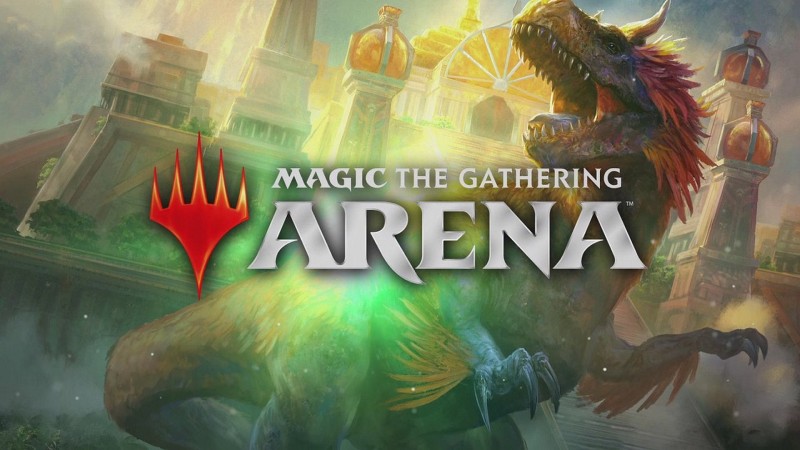Magic – The Gathering (MTG) is a collectible card game, and it has been captivating players globally since its release in 1993. The game has evolved over the years and is now available for both traditional tabletop plays and as a digital version; MTG Arena. Both of these formats offer some unique advantages, and drawbacks. Let’s take a look at some of the pros and cons of both tabletop MTG and the digital MTG Arena versions and the experience that they offer to Magic: The Gathering players.
Tabletop Magic – The Gathering
Let’s begin by looking at the pros and cons of the tabletop, original, version of the game.
Pros:
- Social Interaction – Face-to-face engagement is the order of the day with tabletop MTG, this can help to foster a sense of community and camaraderie. For many players the significant draw of this version of the game is the social aspect, whether this is gathering with friends, visiting local game stores, or participating in nationwide tournaments such as The Gathering.
- Tactile Experience – The handling of the cards and rolling of a physical dice offers a more tactile experience that cannot be replicated in a digital game. This hands-on aspect of the tabletop version enhances the immersive nature of the game.
- Collection and Customisation – For many players the collecting of physical cards and building custom decks can be a rewarding experience. The ability to be able to trade cards with other players can add an additional layer of enjoyment and personalisation.
- Event Participation – Tabletop MTG often provides the chance to participate in a range of events, for example Friday Night Magic, pre-release events, and even large-scale tournaments. These events offer a unique playing experience.
Cons:
- Cost – It can be expensive to build and maintain a competitive collection of physical cards. Booster packs, singles, and accessories can certainly add up over time, this makes tabletop MTG an expensive investment.
- Space and Storage – Physical cards need space for storage and organisation. This can be cumbersome, particularly if a player has limited space to store them.
- Accessibility – Tabletop MTG needs a physical place, whether this is a local game store or a player willing to host games regularly. This can present challenges where there is limited space or if players live a good distance from each other.
- Game Pace – Tabletop games often have a slower pace as a result of the manual handling of cards, shuffling, and rule adjudication. For players who prefer fast gameplay this can be a drawback.
MTG Arena
MTG Arena is also not without its pros and cons.
Pros:
- Convenience – MTG Arena gives players the chance to enjoy the game from the comfort of home. As a digital platform it is accessible on numerous devices, making it easy to play anywhere, anytime.
- Cost-Effective – In-game purchases are available, and MTG Arena gives several ways in which gameplay can result in the earning of cards and rewards. This makes it more budget-friendly compared to the physical card game.
- Automation and Speed – Many aspects of the game area automated on the digital platform for example shuffling and rule enforcement. This reduces the chance of error and speeds up gameplay
- Regular Updates – MTG Arena offers regular updates with new sets, events, and features. This means the game remains fresh and engaging for players, providing a dynamic experience.
Cons:
- Lack of Physical Interaction – The digital format offers less social and tactile elements than tabletop play. Face-to-face interaction can never truly be replaced by interacting with avatars and text chat
- Dependency on Technology – MTG Arena needs a reliable internet connection and compatible devices. Technical issues will disrupt gameplay.
- Collection Limitations – Digital collections are linked to the platform, so unlike physical cards it isn’t possible to trade or sell cards. This reduces the sense of customisation and ownership.
- Monetisation – MTG Arena is considered cost-effective, but there are still in-game purchases and microtransactions. Players can often feel the pressure to spend money to remain competitive.
Conclusion
Both versions of the game provide a unique experience, and both have an appeal, but to different types of players. Where one excels in social interaction and tactile experience the other lacks both the physical and social elements. Where one has higher costs and logistical challenges the other is more cost effective and offers a convenient fast level of game play. There is no real “one is better than the other” option, rather which one works best for an individual’s own unique circumstances. However, both do offer a rich, engaging experience wherever you are in the world.
Topics #Magic: The Gathering #MTG #MTG Arena


![Photo Credit: “Sisters” [film]](https://www.entertainmentpaper.com/wp-content/uploads/2025/04/Photo-Credit-Sisters-film.jpeg)







